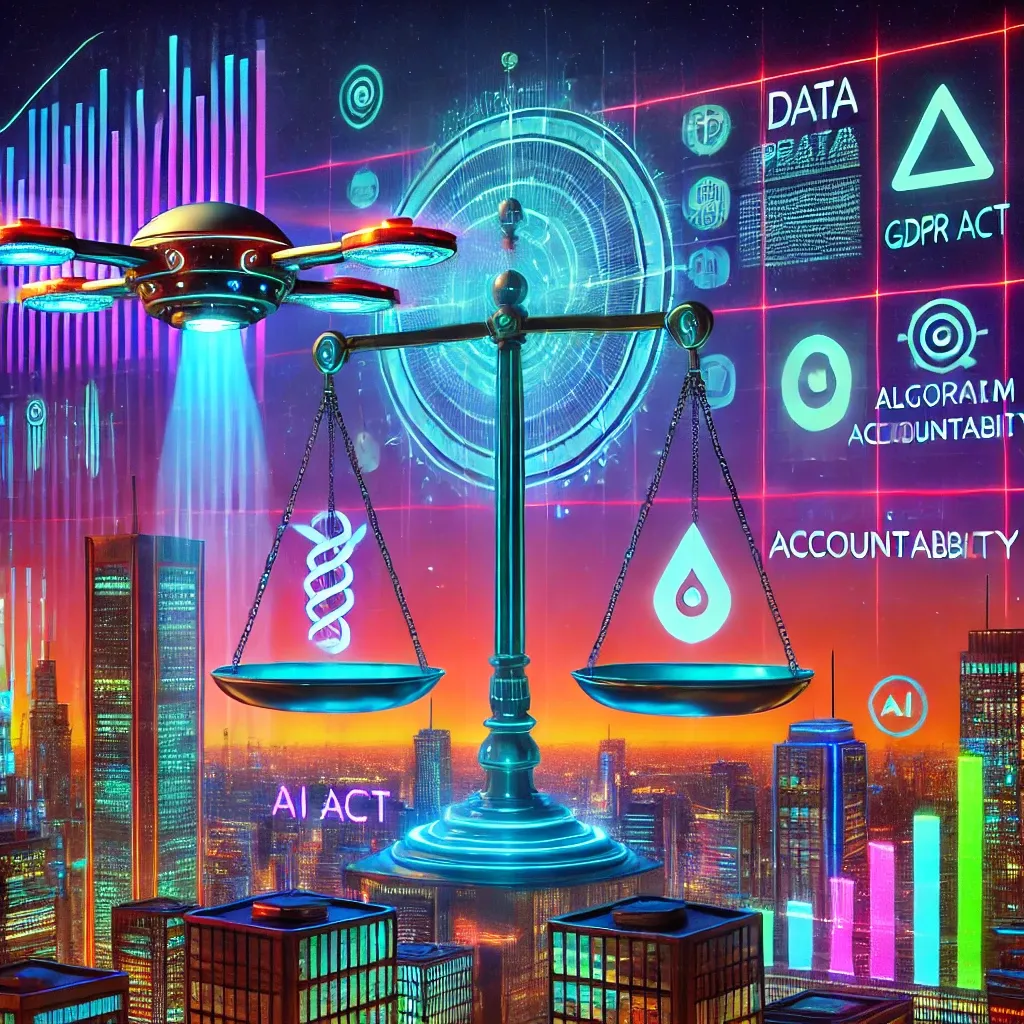AI Governance: Navigating the Legal Landscape for Tech Startups

Introduction
In today's rapidly evolving technological climate, startups are at the forefront of developing innovative artificial intelligence (AI) products and services. However, with the rise of AI technologies comes an urgent need for compliance with a plethora of evolving legal frameworks. What are the implications of these legal requirements for startups? This article explores the fundamentals of AI governance, emphasizing the legal landscape that tech startups must navigate to successfully launch and sustain their AI endeavors.
Understanding AI Governance
AI governance encompasses a framework of policies, guidelines, and practices designed to ensure the responsible use of AI technologies. Why is this governance important for startups? Striking a balance between innovation and regulatory compliance helps mitigate risks and positions these entities for long-term success. A comprehensive understanding of AI governance not only involves compliance but also addresses ethical considerations, fostering a climate of trust and accountability.
Key Regulations Impacting Startups
- Regulatory Frameworks:
Startups must remain informed about both local and international AI regulations. Particularly noteworthy, today, is the European Union’s AI Act, which establishes significant obligations, including risk-based classifications and stringent requirements for high-risk AI systems. - Privacy Laws:
Compliance with privacy laws such as the General Data Protection Regulation (GDPR) in Europe and the California Consumer Privacy Act (CCPA) in the United States is paramount. These regulations necessitate measures to safeguard personal data and promote algorithm transparency, thereby instilling user trust. - Ethical Guidelines:
Adhering to ethical guidelines can help mitigate risks related to bias and discrimination within AI systems. It is essential for startups to ensure fairness and accountability, establishing frameworks that promote ethical decision-making throughout the development lifecycle.
Best Practices for Compliance
- Documentation:
Startups should meticulously maintain documentation regarding their AI governance practices. Comprehensive records not only aid in regulatory compliance but also ensure policies align with overarching business goals. - Training:
Providing AI literacy and responsible AI training is vital. This equips employees with the knowledge necessary to understand compliance requirements and ethical standards, ultimately contributing to a responsible organizational culture. - Integration with Governance Frameworks:
AI governance should not exist in isolation; rather, it must be woven into existing governance, risk, and compliance frameworks. Such integration can streamline compliance efforts and enhance overall organizational accountability.
Legal Cases and Responsibilities
Legal scrutiny and potential liability may arise if startups fail to comply with AI regulations. Notable examples involving algorithmic accountability or discrimination can lead to lawsuits, underscoring the necessity of establishing a reliable framework for legal accountability within AI practices. Additionally, startups should be aware of ongoing legal developments and precedents that can impact their operations and AI projects, as proactive legal strategies can mitigate risks before they materialize.
Public Engagement and Trust
Engaging with the public is essential to understanding societal perceptions of AI. By addressing concerns transparently and demonstrating accountability, startups can enhance public confidence in their products, paving the way for broader acceptance and innovation. Proactive communication and engagement strategies can help startups articulate how they prioritize ethical considerations in their AI development.
Industry Collaboration
To enhance AI governance, fostering collaborative partnerships within the industry is crucial. Startups can benefit from engaging with other tech companies, regulatory bodies, and civil society organizations to share knowledge, best practices, and resources. This collective approach can lead to more standardized practices and a unified voice in advocating for supportive regulatory frameworks that encourage innovation while addressing ethical concerns.
Technological Advancements and Adaptation
Startups must also stay ahead of emerging technologies and adapt their governance frameworks accordingly. As AI technologies evolve, so do the challenges and opportunities they present. Continuous monitoring of technological advancements can enable startups to proactively adjust their strategies and ensure their compliance frameworks remain relevant and effective. This involves not only keeping abreast of technological changes but also adapting governance practices in response to new findings and societal needs.
The Role of Artificial Intelligence in Governance
AI technologies themselves can be leveraged to enhance governance practices. For example, AI can assist in monitoring compliance with policies and regulations by analyzing data to identify patterns or anomalies that indicate non-compliance. By utilizing AI for governance, startups can improve their oversight mechanisms and ensure adherence to legal and ethical standards, thus reinforcing their commitment to responsible AI usage.
Global Perspectives on AI Governance
Different jurisdictions are exploring their own regulatory frameworks for AI, and international collaboration can further enhance the development of AI governance. Understanding global perspectives, such as the guidelines from the OECD and UNESCO on AI ethics, can help startups align their practices with international best standards, facilitating expansion into global markets while maintaining compliance. Collaborating internationally can also foster cross-border discussions on ethical AI usage and regulatory approaches.
Conclusion
Navigating the intricacies of AI governance is critical for tech startups striving to innovate responsibly. By adhering to regulatory frameworks and best practices while addressing ethical considerations, startups can substantially mitigate the legal risks associated with AI technologies. In doing so, they contribute to a sustainable future within the tech landscape, ultimately fostering innovation that is both responsible and trustworthy.

